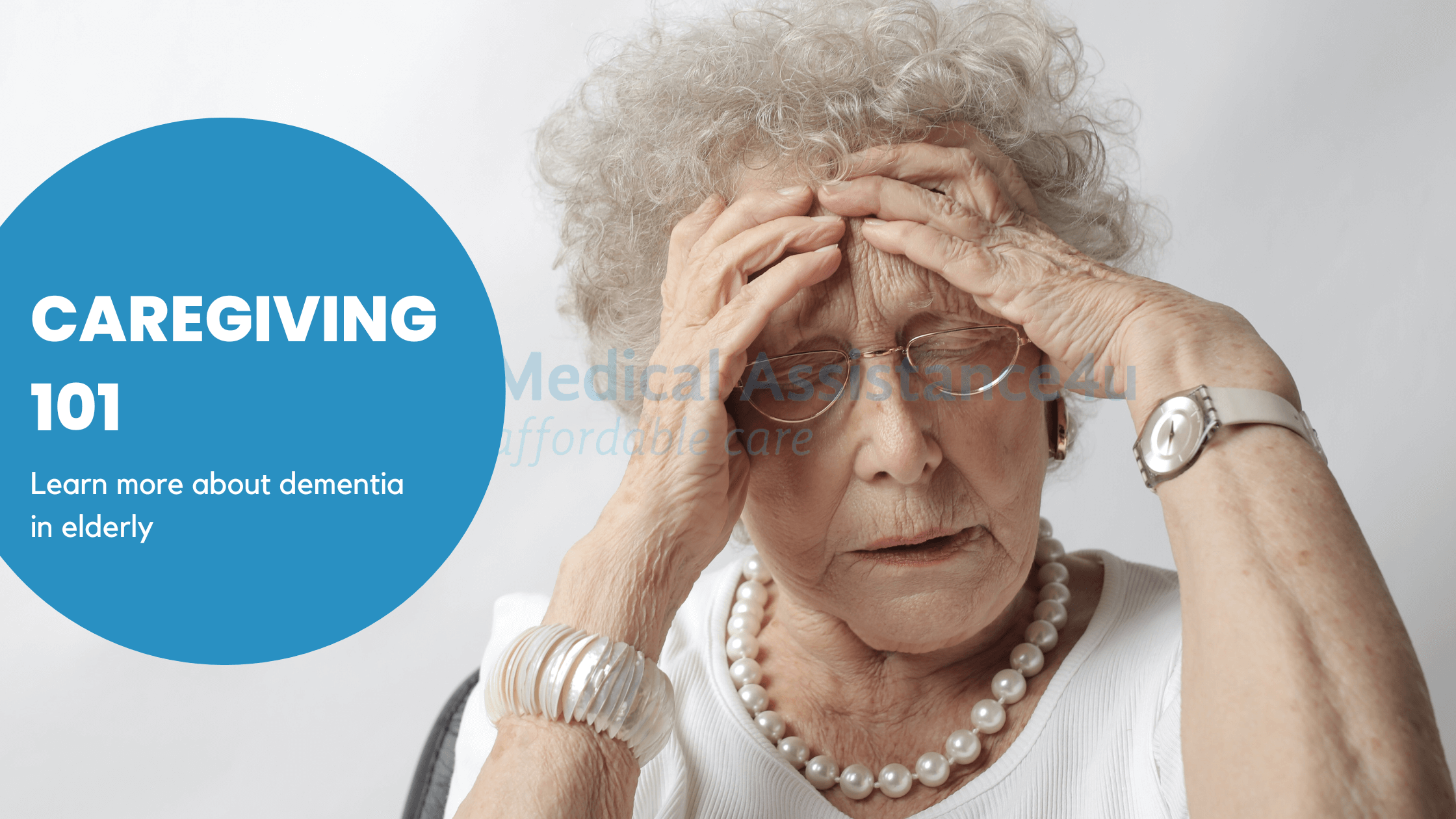Caregiving 101: Learn more about dementia in elderly
- Medicalassistance4u
- February 24, 2023
- Caregiving, Dementia

Dementia in Elderly
The term ‘dementia’ is an umbrella term that encompasses age associated cognitive impairment. Commonly incorrectly associated with ‘senility’, dementia is sometimes seen as a normal part of aging. However, dementia is a more serious form of mental deterioration that is not a normal part of aging.
In Singapore, 1 in 10 seniors above the age of 60 years old has dementia.
Dementia can affect adults of any age, but it is more common in those aged 65 and above. In 2012, there are 28,000 people aged 60 years and above with dementia. By 2030, there will be over 150,000 persons with dementia. This makes it critical for us to learn more about dementia and how to take care of elderly with dementia.
What causes dementia?
Dementia is caused by damage to or loss of nerve cells and their connections in the brain. The location of the damage affects the symptoms exhibited by each individual.
Health and lifestyle are possible factors that will affect our chances of developing dementia.
There are many other conditions that can cause symptoms of dementia, including some that are reversible, such as thyroid problems and vitamin deficiencies.
Common causes of dementia are:
- Alzheimer’s disease. This is the most common cause of dementia.
- Vascular dementia. This may occur in people who have long-term high blood pressure, severe hardening of the arteries, or several small strokes. Strokes are the second most common cause of dementia.
- Parkinson’s disease. Dementia is common in people with this condition. Dementia with Lewy bodies. It can cause short-term memory loss.
- Frontotemporal dementia. This is a group of diseases that includes Pick’s disease. Severe head injury.
Common early symptoms of dementia memory loss
- Difficulty concentrating, thinking and reasoning
- Difficulty in forming new memories or recalling past events
- Struggles to stay focus on conversation
- Frequently unable to identify locations
Is it possible to prevent dementia?
Dementia is hard to prevent because not all causes of dementia is identified. However, there are studies that shows that dementia might be caused by stroke or heart disease. The good news is we are able to reduce the risk of known causes by changing our lifestyle:
- Maintain healthy weight.
- Exercise regularly
- Manage health problems including diabetes, high blood pressure, and high cholesterol through diet change or professional help
- Stay mentally alert by learning new hobbies and being open to new experiences
- Increase social interaction through attending activities or participating in volunteering events
How do we take care of an elderly with dementia?
Being diagnosed with dementia, like all illness, is likely to cause distress to the patient and their family members. At this time, it is crucial for both the patient and the family to have the right support and care. Being well prepared is the first step to coping with the situation:
1.Caregiving support services in Singapore
Dementia Singapore provides information on dementia which can help in providing caregiving to the elderly and access to support groups for individuals who are coping with a loved one diagnosed with dementia.
2.Caregiving by family members
a. Provide reminders for the elders to encourage independence
b. Utilise visual triggers to encourage recalling of past events
c. Ask short and focused questions to keep them focused whilst encouraging them to think
d. Tracking devices
Tracking devices are lightweight accessories that can be kept on the elderly without adding weight. There are many tracking devices available in the market like the air tags (https://www.apple.com/sg/shop/buy-airtag/airtag) and GPS tracker.
3. Feeding and nutrition
a. Avoid caffeine and sugar
Consumption of caffeine or sugar might affect the elderly’s patient, which might lead to sleep problems like sundowning
b. Provide elderly with options to choose from
This encourages the elderly to make decisions for their food choices
c. Choose easy to swallow food
In later stages of dementia, the risk of choking may be higher. Choosing a soft food diet will be more suitable for the elderly.

